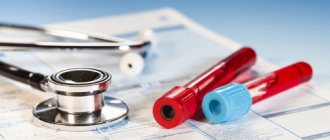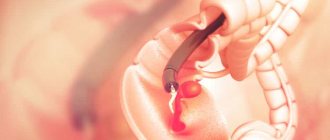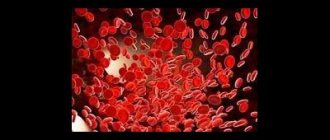directions
Proteins are one of the most complex substances in the body and serve as the basis for the protoplasm of cells. In addition to carbon, oxygen, hydrogen and nitrogen, they also contain amino acids. The latter provide the basis for the construction of protein molecules. They play a huge role in the human body and are responsible for the most important functions: respiration, excretion, digestion, movement, defense, provide the body with the necessary energy and replenish cell components. Protein metabolism disorders develop when more or less of it enters the body. Various dangerous diseases can arise from this, so at the slightest suspicion it is necessary to do all tests in a timely manner.
Stock
Antibody test for coronavirus (COVID-19)
2000a
Rapid test for coronavirus (COVID-19)
Results within 25 minutes from the moment the biomaterial is submitted
1600a
Coronavirus (COVID-19) antibody test at home
from 4000 a
Coronavirus (COVID-19) test at home
from 4200 a
Coronavirus (COVID-19) test
2200a
Diagnostic methods in Medscan
Determining the presence and degree of protein deficiency is not difficult. There are certain diagnostic signs for PEM in the oncological process:
- loss of total body weight by 5% within a month or a tenth within 6 months;
- loss of muscle mass is determined along the circumference of the upper third of the shoulder;
- reduction in the thickness of the skin fold with fatty tissue on the shoulder;
- changes in clinical blood test parameters (number of lymphocytes), biochemical blood test (total protein, its fractions, ferritin).
The Medscan clinic is fully equipped with modern high-precision laboratory and instrumental equipment. As soon as possible, the clinic’s specialists will make an accurate diagnosis and prescribe the optimal treatment regimen.
Our clinics in St. Petersburg
Structural subdivision of Polikarpov Alley Polikarpov 6k2 Primorsky district
- Pionerskaya
- Specific
- Commandant's
Structural subdivision of Zhukov Marshal Zhukov Ave. 28k2 Kirovsky district
- Avtovo
- Avenue of Veterans
- Leninsky Prospekt
Structural subdivision Devyatkino Okhtinskaya alley 18 Vsevolozhsk district
- Devyatkino
- Civil Prospect
- Academic
For detailed information and to make an appointment, you can call +7 (812) 640-55-25
Make an appointment
Protein tests
Albumin is the main protein in blood plasma. Its synthesis occurs in the liver. The main task performed by albumin is to maintain plasma pressure relative to blood volume. At the same time, it delivers various substances and deposits them. Its reduced level indicates pathological processes occurring in the body.
Protein fractions are a comprehensive analysis that allows you to assess the presence of albumin and globulins in the blood plasma. The study is prescribed for kidney and liver pathologies, oncological and systemic diseases, nutritional disorders, as well as chronic and acute inflammatory diseases.
Creatinine is the end product of protein metabolism. Takes part in the energy metabolism of tissues. It is excreted from the body along with urine, so analysis can be used to judge the condition of the kidneys. A high level indicates the presence of kidney failure, dehydration, or a meat diet.
Uric acid is responsible for removing nitrogen from the body. The disruption of its metabolism is directly related to the failure of the kidneys.
Urea is produced in the liver. During its synthesis, ammonia is neutralized. An analysis of urea in the blood can reveal the presence of many dangerous diseases that require urgent treatment, such as: malignant tumors, kidney diseases, burns, leukemia, renal failure, cirrhosis, hepatitis, liver failure.
Total protein is an organic polymer that is made up of amino acids. Its determination in blood plasma makes it possible to judge diseases of the kidneys, liver, malnutrition and cancer.
The thymol test allows you to characterize the functioning of the liver. Increased test results occur in cases where a person has: hepatitis A, malaria, toxic hepatitis, viral infections, cirrhosis of the liver.
During pregnancy, it is very common to have different test results for proteins in the body than normal.
Main causes of hypoproteinemia
Why do total protein levels drop? Its content in the blood can be influenced by physiological factors (individual characteristics and temporary physical changes) and pathological factors associated with serious disturbances of biochemical processes and the presence of diseases.
Non-pathological factors of protein reduction
Physiological hypoproteinemia occurs in the following cases:
- Dehydration (dehydration) of the body caused by prolonged exposure to high temperatures with symptoms of overheating (vomiting, diarrhea);
- Perinatal period. Due to the need to ensure the vital functions of two organisms at once, in pregnant women the volume of blood increases, which becomes less concentrated. The permissible reduction is about 5 to 9 g/l.
- An unbalanced diet, adherence to an incorrect nutrition system (protein-free diets, veganism) and fasting. An insufficient amount of protein supplied from food causes a deficiency of amino acids necessary for the synthesis of its own protein.
- Excessive sports and other physical activity. With increased physical activity, the consumption of all nutrients increases, including the protein component of the blood.
Hypoproteinemia is observed with prolonged immobilization in patients forced to remain in bed.
Dangerous causes of hypoproteinemia
Pathological causes of low protein are due to latent or progressive development of diseases of internal organs, impaired synthesis of biologically active substances, and unfavorable heredity. Pathologies include:
Decreased bilirubin in the blood
- destruction and death of hepatocytes (liver cells), due to cirrhosis, hepatitis, hepatosis.
- water intoxication (overhydration), which occurs due to hypersynthesis of the antidiuretic hormone vasopressin in the nuclei of the hypothalamus (excess vasopressin is dangerous for the development of cerebral edema and coma)
- hypervolemia (increase in circulating blood volume) due to water retention in the vascular bed;
- accumulation of fluid in the pleural cavity of the lungs (exudative pleurisy), in the alveoli (pulmonary edema);
- cachexia (extreme exhaustion of the body), the causes may be aggressive diets, severe infectious and inflammatory diseases, anorexia;
- primary immunodeficiencies (hereditary) and secondary (HIV, AIDS, etc.);
- diabetes mellitus in the stage of subcompensation and decompensation;
- thyroid hormonal imbalance;
- PTH – late toxicosis of pregnancy (preeclampsia);
- oncohematological diseases (malignant lesions of the circulatory and lymphatic systems);
- severe stages of anemia (anemia);
- accumulation of fluid in the abdominal cavity (ascites) as a complication of chronic liver pathologies, cancers of other organs of the gastrointestinal tract (gastrointestinal tract);
- impaired production of pancreatic enzymes (pancreatic enzyme insufficiency);
- malabsorption and other intestinal pathologies associated with protein malabsorption;
- thermal, chemical, electrical burns of a wide area and depth;
- volumetric bleeding (external, due to trauma or injury, and hemorrhage of internal organs);
- proteinuria (the presence of protein in the urine caused by diseases of the renal system).
Reference! Kidney diseases accompanied by proteinuria: glomerulonephritis - damage to the glomeruli (kidney filtration glomeruli), amyloidosis - extracellular protein deposition in the kidney parenchyma, chronic renal failure (chronic renal failure), nephrotuberculosis, anuria, etc.
If there are no physiological reasons for a decrease in total protein a priori, it means that a disturbance in the composition of the blood is provoked by the presence of a pathological process. Unsatisfactory results of biochemical analysis are the basis for rechecking and conducting advanced diagnostics.
What are the symptoms of protein metabolism disorders?
There are several types of disorders of protein content in the blood plasma: hyperproteinemia means an increase in its amount, and hypoproteinemia means a decrease. Elevated protein content can be either a hereditary or acquired disease. When there is a disturbance in the metabolism of nucleic acids, gout occurs.
Symptoms of protein metabolism disorders:
- Excess protein intake may manifest itself as:
- constipation or diarrhea;
- food aversions;
- increased protein content in blood plasma;
- intestinal dysbiosis;
- Low protein intake can manifest itself as two different diseases:
- Kwashiorkor is an unbalanced nutritional deficiency of protein in the human body. Symptoms of the disease include: edema, lethargy, apathy, low body weight, ascites, developmental delay, immunodeficiency, low protein levels in the blood. The prognosis for this disease is unfavorable and very often patients die. Most often it develops in children from 1 to 4 years old. The disease occurs due to a deficiency of one or more nutrients. Contact with an infection (for example, HIV) or poisoning with toxins can further aggravate the situation.
- Nutritional dystrophy is a balanced deficiency. Symptoms of the disease: edema, blood protein levels at the lower limit, low body weight, immunodeficiency, increased levels of ketone bodies. Delayed physical and mental development is not typical for nutritional dystrophy. In contrast to kwashiorkor, dystrophy has the most favorable prognosis for those affected, but there are also fatal cases. It is observed in children under one year of age.
- An unbalanced diet , in which there is a deficiency of essential amino acids, is characterized by: low body weight, impaired development and growth, poor appetite. If there is insufficient content of any amino acid in the body, the symptoms may be of a specific nature, affecting various organs and provoking the occurrence of diseases.
- Excessive amino acid content also has a bad effect on the body. It manifests itself in the form of decreased appetite and body weight, disruption of taste buds, as well as nutrition of tissues and organs.
What causes protein deficiency in cancer?
The causes of protein deficiency in a cancer patient may be the following:
- Loss of appetite due to the toxic effects on the mucous membranes, hematopoietic system, and endocrine glands of chemotherapy drugs.
- Complications of radiotherapy in certain areas (on the gastrointestinal tract, oral cavity).
- A long recovery period after complex combined surgical interventions entails some dietary restrictions.
- The growth of the tumor requires a new nutrient substrate, which entails even greater theft of healthy tissue.
- The increasing breakdown of circulating protein elements is a consequence of the influence of cancer toxins.
- Due to the oncological process of the gastrointestinal tract, it is impossible to eat properly.
- Protein deficiency due to neutralization of ascites in peritoneal carcinomatosis.
In case of malignant neoplasms, it is enough to limit the full intake of nutrients for a couple of days to allow the development of PEM. The tumor requires energy and also provokes rapid destruction of protein tissue.
How is protein metabolism disorder treated?
After an accurate diagnosis, treatment is prescribed by a specialist for each patient individually. In the case of nutritional dystrophy, absolute rest must be observed in the first days. There should be no mental or physical stress. The diet should be complete, rich in vitamins and proteins. At the same time, the expansion of the diet occurs gradually so that the body can adapt to the new eating regimen. Protein preparations are administered and anabolic steroid hormones are prescribed. Anti-inflammatory drugs are used for gouty arthritis.
Treatment methods in Medscan
In our clinic, treatment of protein deficiency is based on eliminating amino acid deficiency, normalizing protein metabolism and simultaneous treatment of cancer. A patient with PEM is recommended to:
- Diet enriched with protein foods. It can be meat, fish, caviar, eggs.
- Protein mixtures and protein shakes are suitable for patients during the postoperative recovery period. According to indications, therapeutic mixtures/cocktails are administered through a probe.
- Medications are solutions for intravenous administration containing a complex of amino acids necessary for life.
Medscan doctors follow international protocols in their practice. Individual treatment regimens are created for each patient using the most effective drugs.








